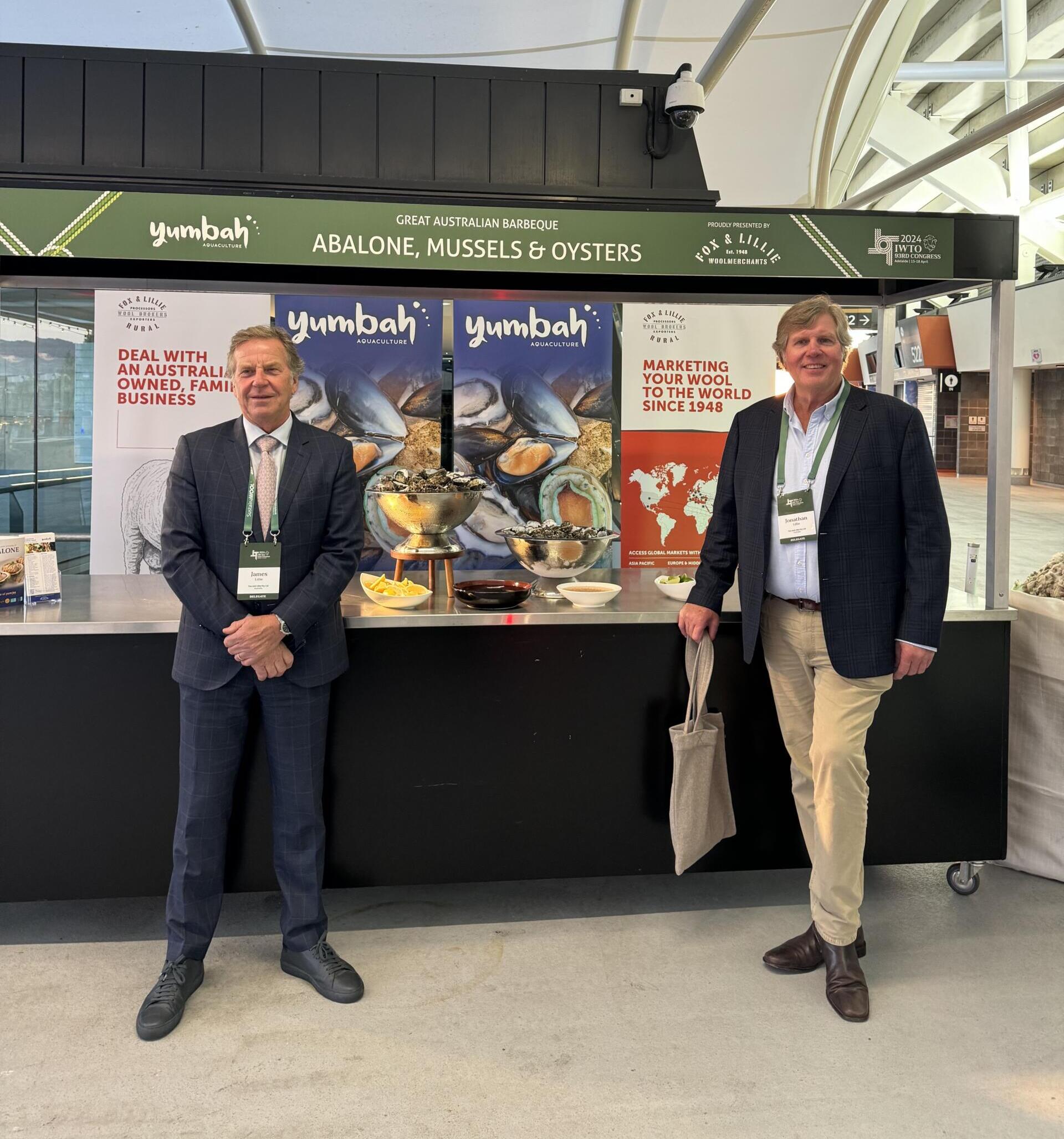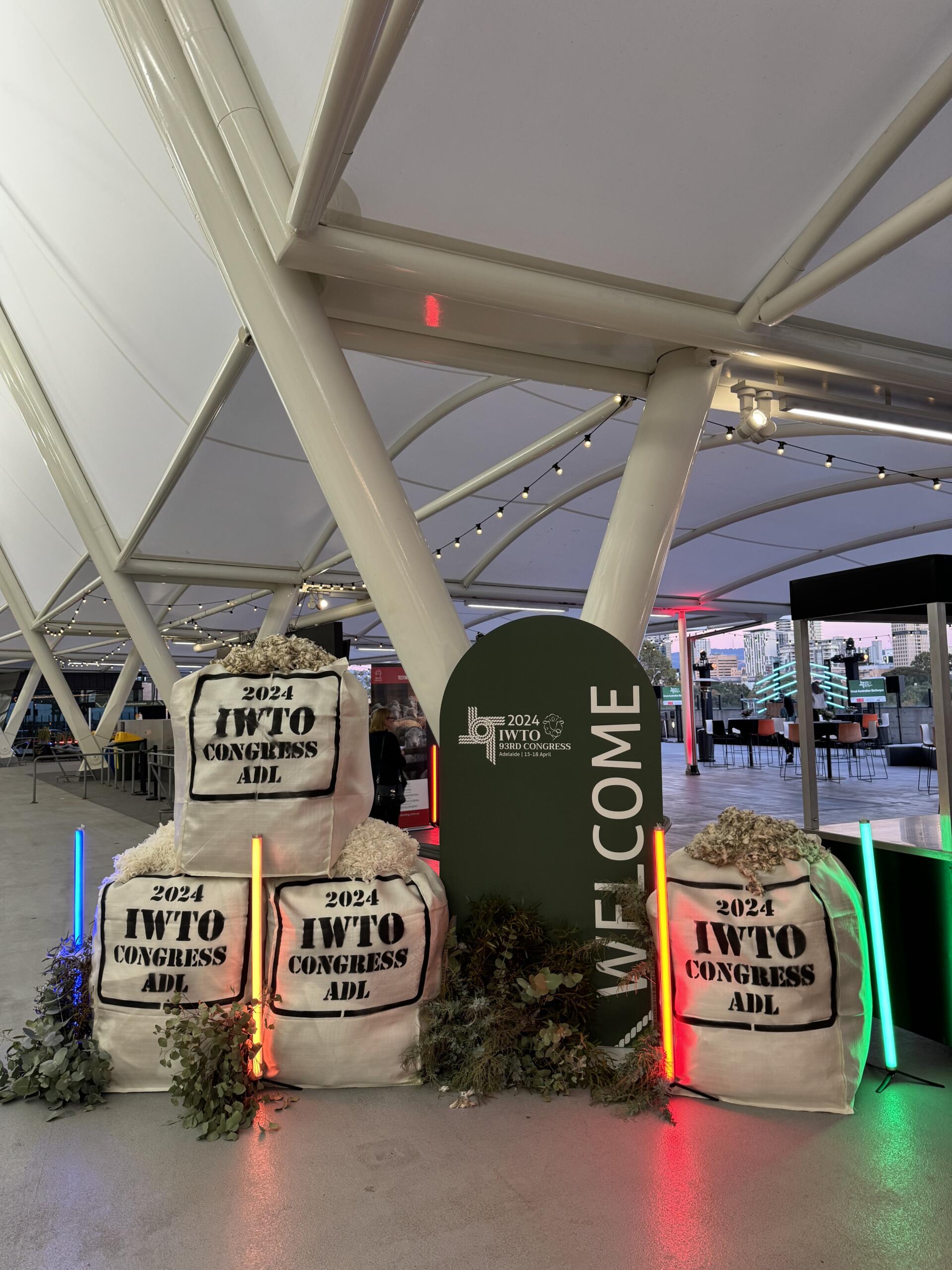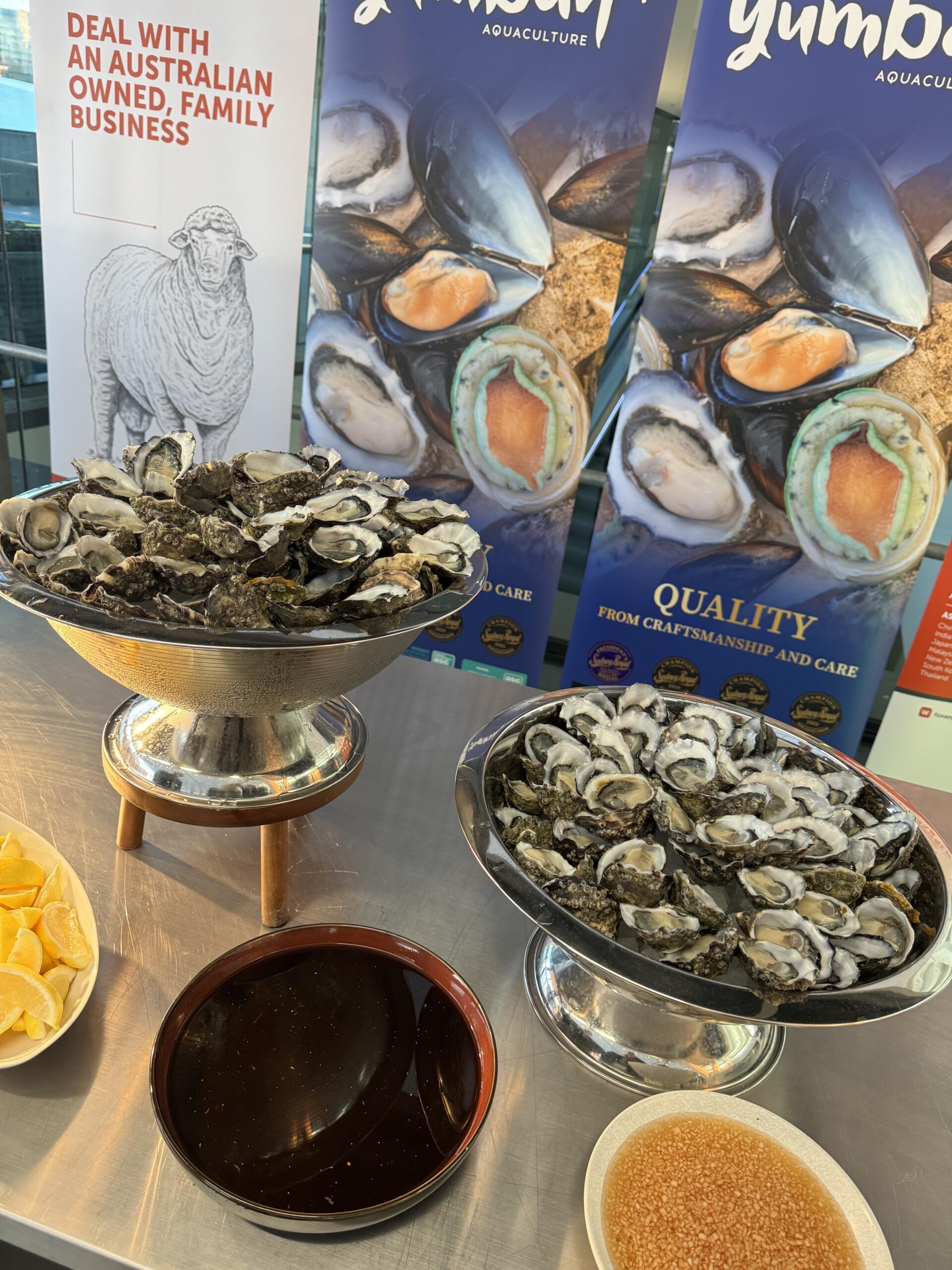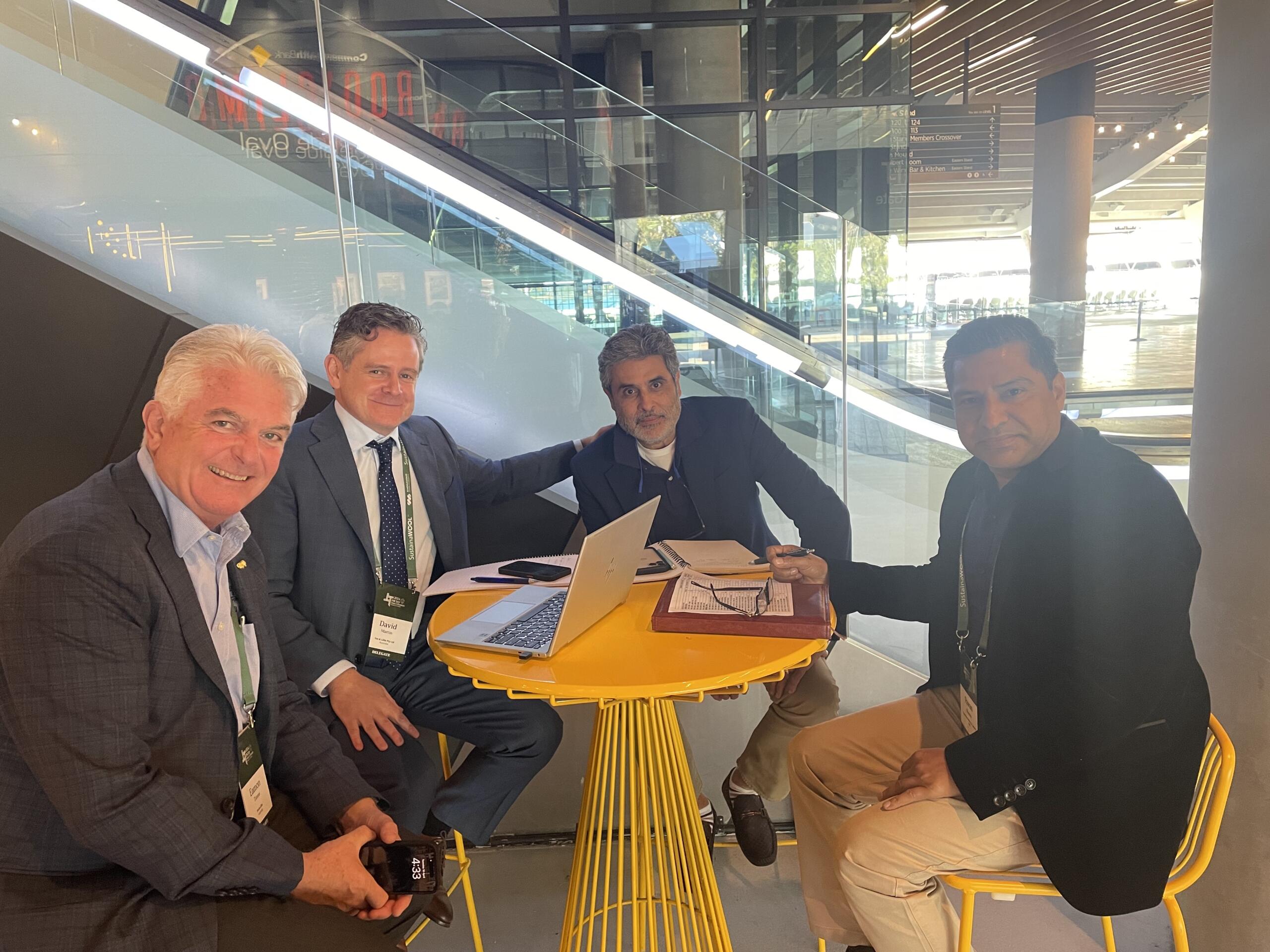Fox & Lillie attended the 93rd IWTO annual Congress hosted in Adelaide from the 15-18 April 2024. Over 350 delegates from around the world attended the congress, including Australian and international wool growers, processors, spinners, designers, and retailers.
Fox & Lillie was a proud partner of the IWTO congress, co-sponsoring the Great Australian BBQ event with Australian Wool Testing Authority (AWTA). Guests who attended the Great Australian BBQ event were treated to a selection of seafood supplied by Yumbah Aquaculture, one of Australia’s leading shellfish aquaculture companies. The Fox & Lillie Group is a major shareholder in Yumbah Aquaculture, who have operations in South Australia, Victoria, and Tasmania, and the event was a great opportunity to link the two businesses.

Each year, the IWTO brings the global wool textile industry together at its congress. The annual event highlights the work of local wool industries and opens the stage for knowledge sharing and networking. This year there was a stronger presence of wool growers which was fantastic to see. This was because the congress was held in Australia and because Australian Wool Innovation supported attendance by subsidising the cost of the ticket.
There were a good variety of sessions over the course of the four days. Some points taken from the presentations were:
- The textile industry is forecasted to improve over the next couple of years. Stronger demand for wool in advanced economies.
- There has been a shift in consumer demands for in-store shopping for luxury items. Increasingly, shoppers are preferring to purchase luxury items in store rather than online for the in-store customer experience. The online luxury market is struggling due to this.
- The re-sell luxury market is growing, and this can impact the luxury retail market.
- Casualisation vs Formal Wear session discussed how formal is coming back because people want to dress up again. This return to formal will likely be less formal than before, and more niche and upmarket, with more freedom of expression. The view on how the market should respond to the reality of the new formal market is innovation in patternmaking, innovation in fabric engineering, innovation in the supply chain (traceability), and innovation in wool growing and farm practices.
- The session also highlighted a new formal trend that is coming – Made-to-Measure. It applies to both male and female wear, and will be both innovative, functional, and eco-friendly, but there will be limited industrial capacity.
- There was a session presented by the University of Adelaide about their ongoing research into Bio-Harvesting using a new protein. The protein can cause a weakening of the staple of the fibres to such an extent that a mechanical removal device will break the fibre and remove the fleece without the need for cutting equipment. More detailed information can be found here: New Biological Wool Harvesting Research.
- Update on the EU Product Environmental Footprint (PEF). The legislation that is being driven by the European Commission will change how companies measure the environmental impacts of their products throughout their entire life cycle. However, there are a couple of major issues if the PEF maintains its current structure and AWI is working very hard behind the scenes to lobby for change. PEF accounts for 16 impacts, and according to AWI, none of the 16 impacts includes the negatives of synthetics such as microplastics and plastic waste. PEF also assumes that the most durable products have the longest life, but research shows that only 1/3 clothing is thrown out because it is worn out. This would not address fast fashion.
- Other discussions also touched on in-setting opportunities for woolgrowers, saying that the wool industry has the opportunity to reduce emissions and inset because of the amount of land that is controlled. One of the brands said that they love wool and want to use more wool, but can we deliver lower impact wool? This is becoming more of an expectation from all sectors regarding reduction and removal of emissions.
Most topics were well covered by Sheep Central and Stock Journal so if you would like more information, please visit their website.
More photos from the congress:



